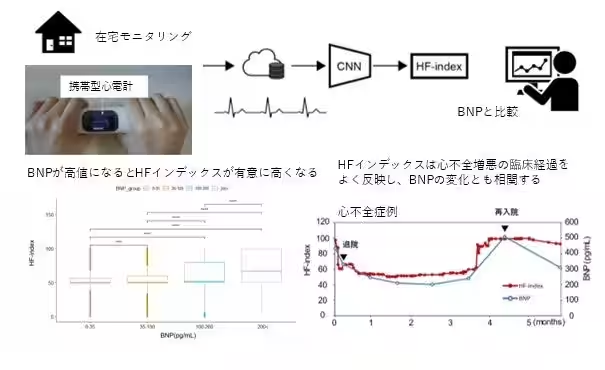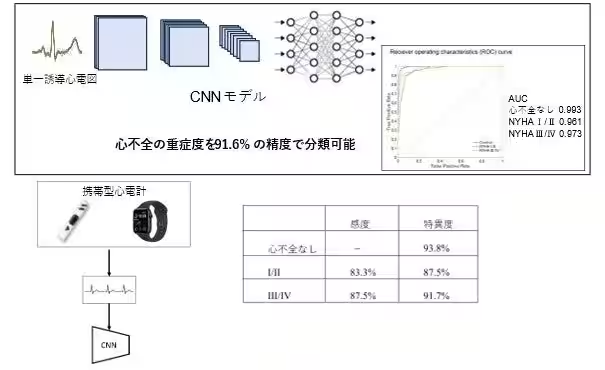

AI System Developed for Early Detection of Heart Failure at Home
Novel AI System for Early Detection of Heart Failure
In an exciting advancement for telemedicine, researchers at the University of Tokyo and SIMPLEX QUANTUM Inc. have developed a groundbreaking artificial intelligence (AI) system designed to detect heart failure from the comfort of home. This system relies solely on data from portable electrocardiograms (ECGs), achieving an impressive classification accuracy of 91.6% for heart failure severity.
The Significance of Early Detection
Heart failure remains a major health issue, often leading to repeated hospitalizations and significantly higher mortality rates once diagnosed. Early detection is key to managing the condition effectively, enabling timely medical interventions such as medication adjustments that can prevent hospital admissions. However, monitoring heart failure progression at home has traditionally posed challenges due to limited detection methods available to patients.
AI Model Development
The research team, led by researcher Eriko Hasumi and professor Katsuhito Fujiu from the Advanced Cardiovascular Medicine department at the University of Tokyo, utilized a convolutional neural network (CNN) model to develop their AI system. This revolutionary approach allows real-time assessment of heart failure through the analysis of single-lead ECG data, which can be easily acquired using wearable devices like smartwatches.
In their study, they analyzed ECG data from 9,518 participants, including both heart failure patients and healthy individuals. The CNN was designed to evaluate the New York Heart Association (NYHA) classification, transforming subjective assessments into objective AI predictions that feed into a new metric called the Heart Failure Index (HF Index). This index quantifies the severity of heart failure in real-time, providing crucial data for both patients and healthcare professionals.
Unprecedented Real-Time Evaluation
The HF Index has shown a significant correlation with B-type natriuretic peptide (BNP) levels, a common marker for assessing heart failure severity. Notably, the HF Index often rises earlier than BNP levels, indicating its potential as an early warning system for patients, allowing for timely interventions that can mitigate deterioration of their condition.
Through this approach, patients can now monitor their health status from home, significantly reducing the risk of re-hospitalization and improving their overall quality of life. The integration of AI in monitoring heart failure marks a leap forward in disease management, paving the way for more efficient healthcare solutions.
Implications for the Future
The incorporation of this technology into everyday medical practice could revolutionize the management of heart failure, making extensive use of telemedicine possible. As we move toward an increasingly digitalized healthcare landscape, the ability of patients to monitor their conditions at home becomes vital, not only for individual well-being but also for broader public health outcomes.
The research findings are set to be published in the highly respected journal, the International Journal of Cardiology, on April 24, demonstrating the importance and relevance this study holds within the cardiovascular field.
With ongoing advancements in medical AI systems like this one, we are poised to enhance patient outcomes dramatically and redefine healthcare as we know it.
This project received support from the Japan Science and Technology Agency (JST), which is working toward creating a society capable of disease prediction and prevention by 2050.
As this technology matures and gains acceptance within the medical community and among patients, we anticipate a significant transformation in how chronic conditions like heart failure are managed, ultimately leading to a healthier future for many.






Topics Health)










【About Using Articles】
You can freely use the title and article content by linking to the page where the article is posted.
※ Images cannot be used.
【About Links】
Links are free to use.